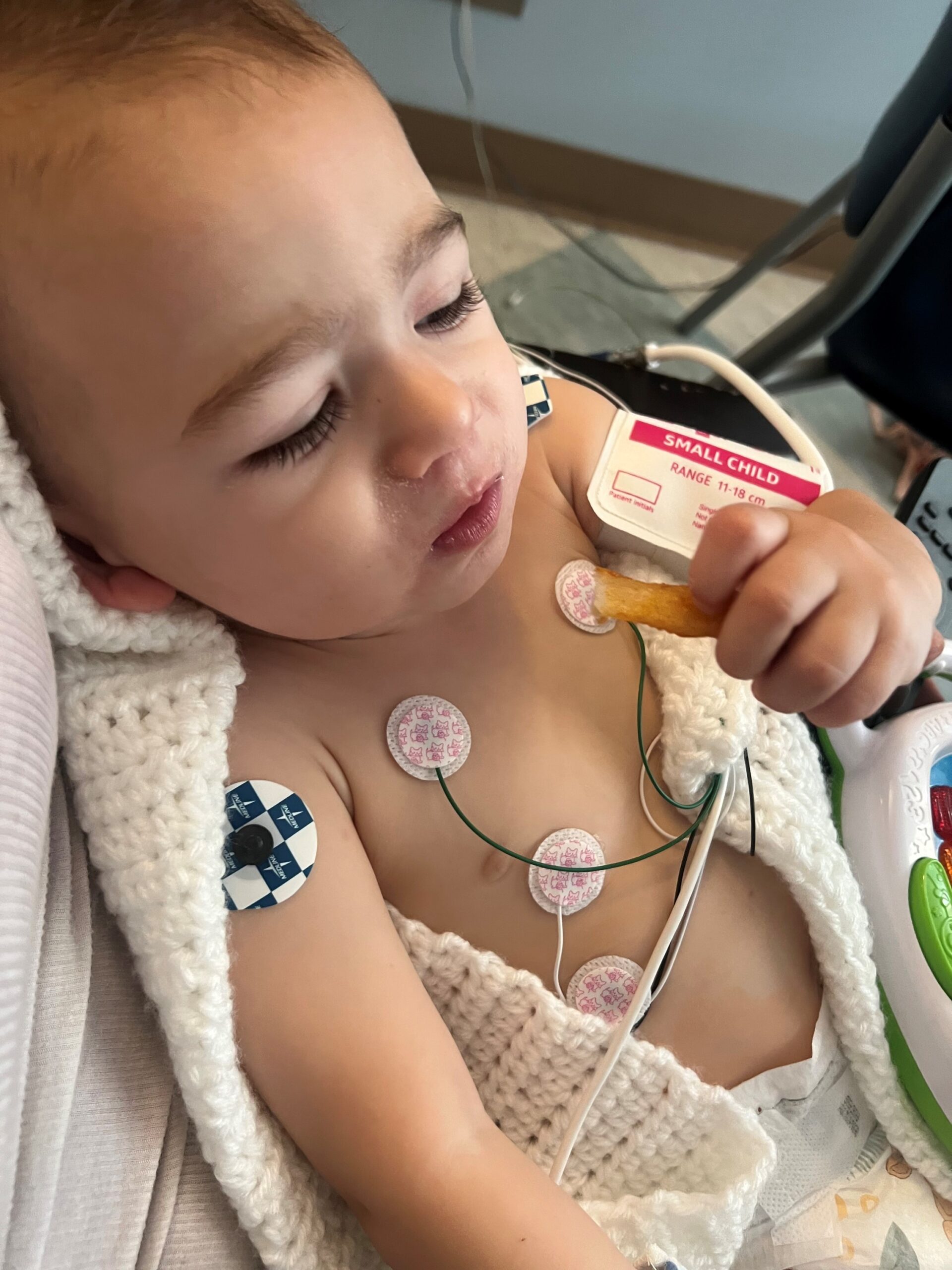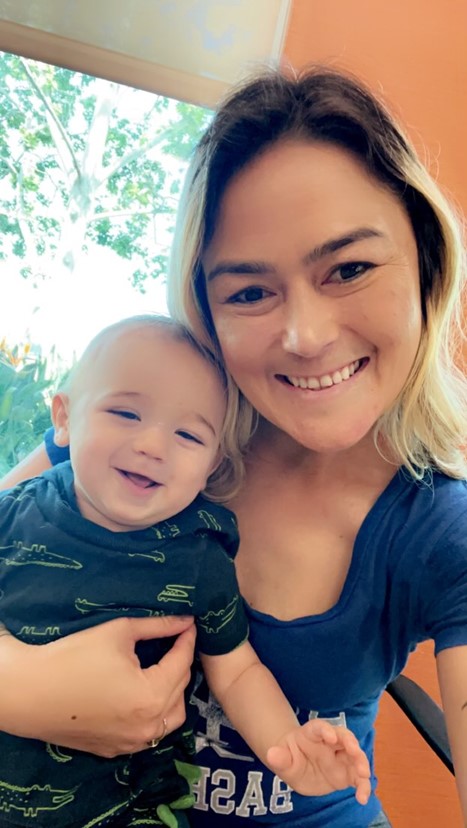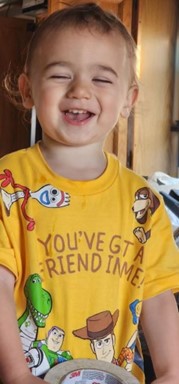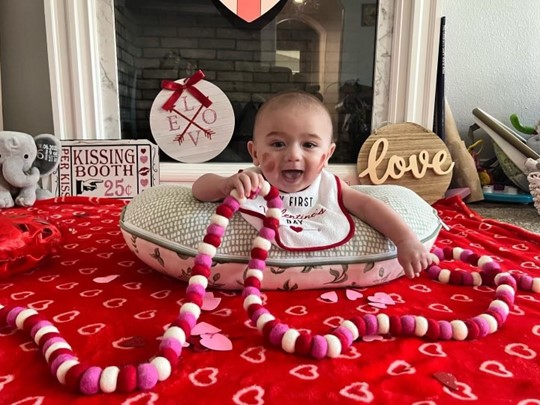Meet Maverick Ezekiel Miles, affectionately known as Mavey, a resilient 18-month-old with an indomitable spirit. Since birth, Mavey faced a series of health hurdles, including recurrent RSV infections (respiratory syncytial virus) and a congenital heart defect called atrial septal defect (ASD). The condition is characterized by a hole in the heart’s upper chambers and made Mavey more likely to get infections.
When their local hospital in Southern California ran out of solutions, Mavey’s mom, Catherine, looked for other care options. That’s when she discovered Rady Children’s Hospital-San Diego and the expert guidance of Howaida El-Said, MD, pediatric cardiologist and director of the cardiac catheterization laboratory at Rady Children’s, and professor of clinical pediatrics at UC San Diego School of Medicine. Here, the Miles family found comfort and guidance in navigating Mavey’s complex diagnosis. Dr. El-Said’s advocacy ensured Mavey received the urgent intervention he needed, speeding up a procedure to fix his heart defect.
Congenital heart defects, present at birth, affect approximately 1 in every 100 newborns. The #3-ranked Rady Children’s Heart Institute offers comprehensive cardiology and cardiovascular surgery services, including a wide spectrum of congenital heart conditions in patients of all ages. Congenital defects result from incomplete or abnormal development of the fetal heart during early pregnancy. While some are linked to genetic disorders, the cause of most remains unknown. Although prevention isn’t possible, treatments are available for both the defects and any associated health issues. Some defects cause severe symptoms at birth, requiring newborn intensive care and an immediate cardiologist evaluation. Others, like atrial septal defects, may remain undetected until adolescence or adulthood.
“ Mavey’s journey is a testament to the resilience of the human spirit and the power of exceptional pediatric care,” reflects Dr. El-Said. “His case highlights the importance of timely intervention and collaborative teamwork in overcoming complex cardiac conditions. It’s incredibly rewarding to see Mavey thriving today, and I’m grateful to have been part of his journey toward a healthier, happier life.”
Mavey’s journey is a testament to the resilience of the human spirit and the power of exceptional pediatric care,” reflects Dr. El-Said. “His case highlights the importance of timely intervention and collaborative teamwork in overcoming complex cardiac conditions. It’s incredibly rewarding to see Mavey thriving today, and I’m grateful to have been part of his journey toward a healthier, happier life.”
Thanks to the collaborative efforts of the Rady Children’s care team and the unwavering support of his family, Mavey underwent a successful procedure to correct his heart defect at the Dickinson Image-Guided Intervention Center. The center, the first of its kind in the nation, uses real-time magnetic resonance imaging (MRI) technology, offering clearer images with minimal or no harmful radiation exposure. And by using catheterization procedures instead of invasive surgeries, kids like Mavey can avoid open heart surgery. Today, Mavey is thriving.
“The care and compassion at Rady Children’s surpassed all expectations,” says Catherine. “From the expertise of the medical team to the genuine kindness shown to our family during a difficult time, we are forever grateful. Mavey’s smile lights up our lives, and I can’t thank Dr. El-Said and Rady Children’s enough.”
